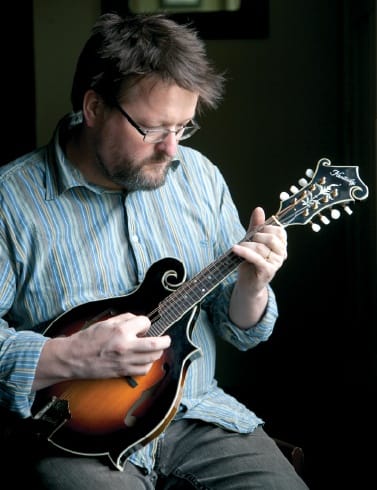
A common problem that you can encounter when talking to many wine media, wine lovers, winemakers, in fact anyone connected to the wine industry, is that their passion for wine has become so consuming that it’s not only all they want to drink, but also all they think about and talk about: it’s all life is about. Not so here.
In fact when I spoke to Max Allen recently he’d just poured himself off a plane from a Bourbon distillery tour in Kentucky, USA.
That’s not to say Max is silent on the subject of wine, far from it, his views on organic and biodynamic viticulture and alternative wine varieties are widely published and applauded, but the truth is that he applies the same principles of diversity and sustainability to everything else in life as well. Like work. Or beer.
“They phoned me a couple of months ago and said, ‘Do you want to go on an all-expenses paid trip to Kentucky to Maker’s Mark,’ and luckily I have form, I actually have done tastings and written about it and I interviewed Bill Samuels some years ago,” Max said.
“I’ve always wanted to go to Maker’s Mark and watch for myself how they hand-dip each bottle in that red wax—yes, they really do that, I’ve got the pictures to prove it. And because I play the bluegrass mandolin, obviously this is the home of the whole thing. It was amazing to be able to spend a few days there just running around, not as part of a media tour.”
Max had an upbringing that will sound familiar to anyone else who lived in England in the 1970s and ’80s: the food was average, his parents didn’t really drink wine, his Nana had the odd glass of Sherry, and there are memories of demijohns of Italian grape concentrate bubbling in the basement. But Max’s perceptive, judicious nature became apparent at an early age. That, or he was just a bit of a geek.
“There was no real exposure to either wine or good food growing up in England, this was pre-Jamie of course, and pre-Gordon,” Max said.
“Looking back on it, my grandparents’ cooking was probably the kind of stuff that we all revere now as ‘slow food’. My granddad had an allotment and I remember going down and tasting fresh veggies out of the ground and that kind of thing—but that’s in retrospect.
“As a kid I was a bit of a nerd and I used to be really fascinated by those Sunday Times ‘taste test’ articles where they’d rate baked beans.”
“I was fascinated by that, and this is really nerdy, but as a kid I used to go out and buy all the different kinds of lemonade I could find and try them all and rate them. Not something I was doing a lot, but something I can point back to as there being an air of discernment there. So when I went to art school I was like a discerning beer drinker. Rather than just going out and getting completely shitfaced, I drank real ale and was interested in that kind of thing.
“Then, when I left art school and came to Australia to visit my step-dad, who is Australian, we went out on a tour of vineyards in the Barossa and Clare, and that was it. I wasn’t particularly interested in wine then—prior to that I was drinking £2.99 Fitou—but I was a little bit discerning so when you go and visit places like Sevenhill and Rockford and Lehmann in one day and have lunch at the Sevenhill pub, it was just a complete revelation. And then as it happened, the next week I caught up with a relative in Sydney who took me to Bilson’s restaurant when he was at Circular Quay and we drank Grange.
“And then I stayed in Melbourne with Sophie, who I’m now married to, and experienced Melbourne pub culture and that whole pub music scene. So in the space of a couple of weeks I went from being an ex-student in England to experiencing great cellar doors, Grange and Melbourne lifestyle. I thought, ‘Gee that’s alright, isn’t it?’”

Like art students everywhere, Max worked in a bottle shop called Victoria Wine while he was at college, and returning from Australia went to work for Oddbins instead, (“They were almost begging to employ me because I was an art student and had just been to the Barossa—that’s pretty much all the credentials you need to work in Oddbins, probably even today”) He also did his time at the IWC, meeting Robert Joseph and his confederates along the way, which sowed the seed for further inspiration.
“By this time I was completely obsessed with wine, and I saw the kind of lifestyle that people like Tim Atkin, Robert and Oz had, that these guys—and they pretty much were all guys—could make a living out of writing about something they were obsessed with,” Max said.
If was fortunate really that Max was so obsessed with wine by the time he moved to Australia because most beers available over here then weren’t much to get excited about. But the beer industry has evolved almost as far as the wine industry has in recent years, as brewers have gone back to basics to focus on producing beers of character and individuality. And not just beer, Max believes that another Australian boutique drinks revolution could be just around the corner.
“The beer situation is a lot better now than it was when I moved here, no question,” he said.
“There’s some really exciting stuff happening with beer at the moment. In fact rather than the usual January Summer wines tasting for Gourmet Traveller, next year it’s going to be beer.
“Iwent to White Rabbit, the new one next door to Innocent Bystander, the other day—very cool. But then everything that man does is very cool. Another really good brewery to chase up is Two Metre Tall in Tasmania by Ashley Huntington, he was Hardy’s winemaker at La Baume. He is, as the name suggests, a very tall bloke, but he’s really going the hardcore route with his brewery—they’re growing everything themselves, from the barley through to the hops.“
But he makes a very good point about how there’s a sense of rebellion, or certainly a reaction against corporate drinks culture, with boutique brewery consumers. Ashley’s argument is that if you want real flavour and real character and real interest then you’re going to find it not in the wine industry, but in the brewing industry, because that’s where people are producing products that are cloudy and difficult and challenging and out-there. It’s something that Ashley thinks is lacking in the wine industry.
I disagree with him, actually, I think it’s still there, but I think that’s one of the reasons why a lot of Australian winemakers are looking at organics and biodynamics and natural winemaking.
“But I think cider’s going to be the next revolution, boutique cider. Because it presses all the same buttons as boutique beer and we’ve got the varieties of apples here. There are more than 50 of the best English and French, particularly French, cider apples available in Tasmania and Orange and places like that. You know how brewers at a boutique level absolutely pride themselves on the naturalness of their product and they talk about the German Purity Laws, promoting this sense of natural flavour and all that kind of stuff. It’s one of the reasons I think the cider thing’s going to take off, because we do have these really, really exciting and unusual apple varieties available and once people get to taste them and see what you can make from them I think it’ll be a bit like the alternative grape variety movement over the last 10 years.
“One of the things that held the alternative varieties movement back was the availability of varieties. It’s easy to say, ‘Greek varieties would be fantastic to play with’, but it’s going to be five years before you see the first wines because someone’s got to go out and source the cuttings and propagate them. Whereas with cider, if someone says to themselves, ‘I want to make some really interesting French-style cider’, the varieties are there.”
Max points to the Somerset-style Small Acres Cyder from Orange as one of the most exciting he’s seen, and Henry of Harcourt from just outside Bendigo is another but his apples are sourced, believe it or not, from Orange. And a few wineries are catching on now too.
Alternative beverages are one thing, but the task in hand is a little closer to home. Even recognising that the Chardonnay revolution has been one of the most exciting things to happen to the industry in the last 10 years, Max is on a mission to prove that there’s more to wine than these two varieties. His promotion of diversity in winemaking includes his long-standing involvement with the alternative varieties scene, and also a belief that the future of Australian wine lies in making the right wines for the right regions for Australian consumers to enjoy, before taking orders from the rest of the world.
“Arriving in Australia 18 years ago, coming from working in the English wine trade and particularly coming off the IWC, I was used to enormous diversity. So wines that I really liked, and still really like, were those from the southwest of France with varieties like Tannat and Carignane in them, and I still really enjoy wines from the south of Italy. And so coming here and getting to know the regions and looking at the climatic situations that we’ve got, I didn’t understand why these varieties weren’t grown here,” Max said.
“If you look at anybody’s music collection it’s usually quite diverse—we don’t listen to the same thing all the time, we don’t read the same books all the time, so why are we only concentrating on six varieties? And really at the moment, only two dominate in Australia. It just seems bizarre. That’s always been the motivation for me to get involved in alternative varieties: to promote diversity. Just to say to people, ‘there’s just so much more to life than Chardonnay and Shiraz’.
“I don’t care about the rest of the world. I actually think it’s really important that we stop thinking about the rest of the world. I know exports are really important to a lot of big companies, and also to a lot of small companies, but maybe they shouldn’t be. I think we need to concentrate more on getting our own act together and making wines that are popular here and that we’re proud to drink.
“We need to do more to create a sense of excitement in what’s happening here that will then, I believe, create interest from the rest of the world. I know this is all completely naïve and unrealistic, but I’m allowed to be because I’m not making a living out of selling the stuff. Rather than going to the rest of the world and saying, ‘What would you like?’ Them saying, ‘We want more Sauvignon Blanc,’ and then us saying, ‘Oh, how are we going to do that?’ We need to turn it around to figure out what we do best, how we can best make a wine from the country that we’re living in that will please ourselves first, and then work out how to sell that around the world.
“A lot of the alternative varieties fall into this category, good varieties like Vermentino and Nero d’Avola. The future of these varieties is possibly not as varietal wines but as regional blends—something that definitely needs to be addressed in this country is moving away from varietal labelling. It has been a really good thing to get people interested in wine and I’m not saying we shouldn’t put the varieties on the front labels, but I think we need to look at promoting regional styles rather than regional varietals necessarily. Except for the obvious exceptions, such as you’d be mad not to promote Tasmanian Pinot Noir.”
On the subject of promotion, Max has been involved in several of the v-know events organised by Melbourne wine marketing wizard Rory Kent. The most high-profile of these in probably the Young Gun of Wine award, of which Max is a judge. He doesn’t seem quite sure how he got involved and Rory’s methods may be a little unorthodox, but they work. If you want to catch the youth market, you see, you have to use a youth.
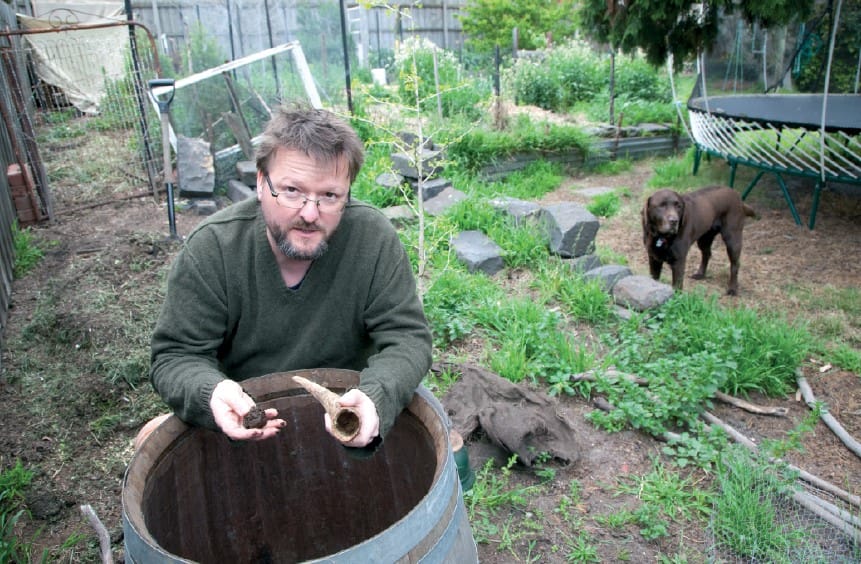
“I think Rory actually has a voodoo doll of me and Nick Stock and Philip Rich, and probably everybody else who’s involved in Young Guns. That or he has some kind of magic powers. Nobody quite knows how Rory does what he does, but it obviously involves some kind of weird magic because it defies human logic. Basically, I’m involved because I think what he does is really good, and he pulls it off with such style,” Max said.
“Rory has managed to do what the rest of the wine industry has failed to do. I’ve been listening to wine industry marketing professionals flailing around and gnashing their teeth about how they are going to attract the youth market for over 10 years now. And every attempt succeeds about as well as Vegemite 2.0. Why it hasn’t worked, and why iSnack so spectacularly failed is that they’re not twenty-somethings. Rory—who I think is even now still twenty-something—understood from the beginning that young people don’t want it dumbed down. If you look at every event of his that I’ve been involved in, the quality of the wine is the best. And he’s got some seriously good designers involved in this Wine Of Design thing he’s got coming up. How he gets them involved is this mystery that no-one quite understands, he just charms the pants off them.
“But he also got onto social networking and word of mouth—old fashionedmarketing, you know, people just talking to each other, not using their bloody iPhones. And the way he presents it, for anyone who wants to get really involved in the clonal selection of the Pinot Noir, the information is available to them, but if you just want to go and get smashed on top quality booze you can do that too. It would be hard to analyse how he’s succeeded in doing it, but I think he has.”
Thanks to the iPhone generation, Max is quick to admit that the future is uncertain for print media (“Unless you’re Tyson Stelzer and you can self-publish and survive on two hours of sleep a night”) but he is currently working on turning the Oral History Project, funded by the Wolf Blass Foundation, into a book that we can expect to see next year from Melbourne University Press. However, his chosen specialised subject is obviously the environmental side of the wine industry and there is another new book in the pipeline, which is the result of a major project he’s been working on for a couple of years. Unfortunately, “We don’t have a publication date yet, and I don’t have a title!
“It’s all of the things I’m interested in: natural winemaking, alternative varieties, organics and biodynamics, generational change, all the stuff that I write about in the Weekend Australian and elsewhere. It profiles winemakers that I think are kind of doing good things in that area, so it’s about re-discovering and getting back to the future of Australian wine, if you like. That’s kind of the thrust of it. It’s sort of The New France meets Adventures on the Wine Route.
“I think you’ll get World of Fine Wine at $100 a copy or whatever it is, there’ll be a future for that, certainly in our lifetime because there will still be enough people like me and you who appreciate a well-produced magazine and fine, considered writing in the print form. But when you think about it, most wine media is probably better suited to online than it is to print because it’s about opinion and reviews and immediacy—the problem is working out how to make a living out of it.
“Unless you’ve already established a brand through print, like Jancis Robinson and Robert Parker have done, and your brand is desirable enough for people to pay for it, there’s no future for it. Philip White is a classic example—Drinkster or Drankster, I can never remember which one’s the blog and which one’s the tasting note. I reckon that’s one of the best wine blogs out there, and there’s room for intelligent, erudite, articulate opinions like Philip’s, but how’s he making a living out of that? For those of us who’ve still got kids at home, bills to pay, mortgages to pay off it’s a bit of a worry really. Maybe I am just getting old but I would much rather read a well-considered, well-written essay, whether it’s online or in print, than just a couple of Tweets.”
Max may see an uncertain future for wine in print, but he does have a vision of the future of wine in general, and you won’t be surprised to hear that environmental responsibility is at the heart of it. When it comes to progress in diversity and sustainability, Max thinks we’re missing a trick—not just in terms of benefiting our own industry, but also in impressing overseas markets. Ticking boxes to re-use water and offset carbon footprints is a good place to start, but in the long run, continuous improvement is the real key. Fortunately, some regions are already leading the way for the rest to follow.
“The wine industry at a national level should be embracing environmental issues more wholeheartedly than they are,” Max said.
“There are some really, really impressive and exciting regional initiatives happening, like the Generational Farming thing down in McLaren Vale. That’s a voluntary, points based system. There’s a minimum you have to do to be certified as sustainable, but the more points you get, the more kudos you get, so it encourages improvement in behaviour. In comparison I think the Entwine Australia system is pretty half-hearted and gutless because it just asks you to record what you’re doing without encouraging improvement.
“About 40-50% of McLaren Vale’s vineyards are already using organic and biodynamic practices and the same proportion are being irrigated using a reclaimed water scheme—which is ultimately not sustainable because they’re using reclaimed Murray water, but that’s not the point, it’s a lot more impressive than a lot of other regions. McLaren Vale has the capacity in the next five years to be majority, meaningfully sustainable, and that is massively important in an international marketing perspective.
“Because of politics and because of the reluctance in a lot of sectors to really embrace meaningful agricultural innovation, relying instead on scientific solutions, I think this industry is missing a huge opportunity. I reckon, ironically, the irrigated regions along the Murray could convert to 100% organic viticulture pretty easily. Everyone has to reduce their water use anyway, and if you can do what Chalmers and other people have been doing and halve your water use, and still produce high-quality fruit—that’s an amazing story to be able to tell the rest of the world.”
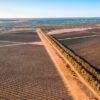


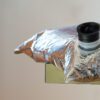
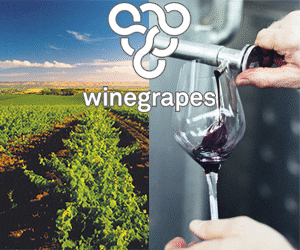
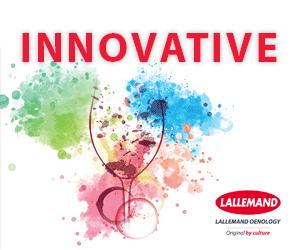
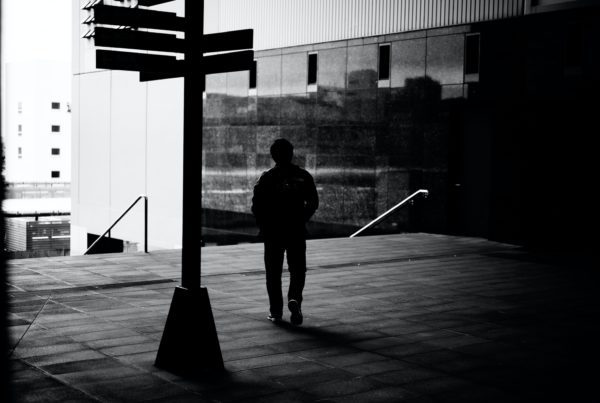
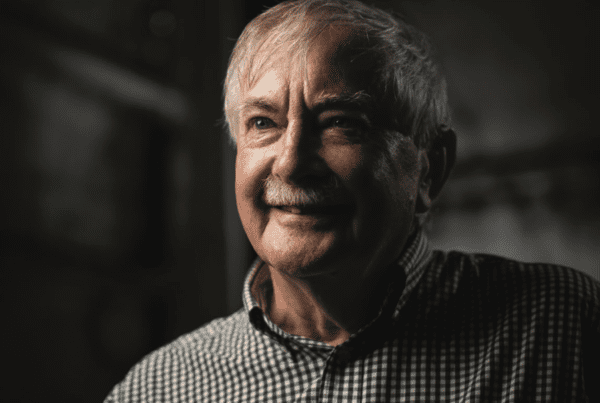
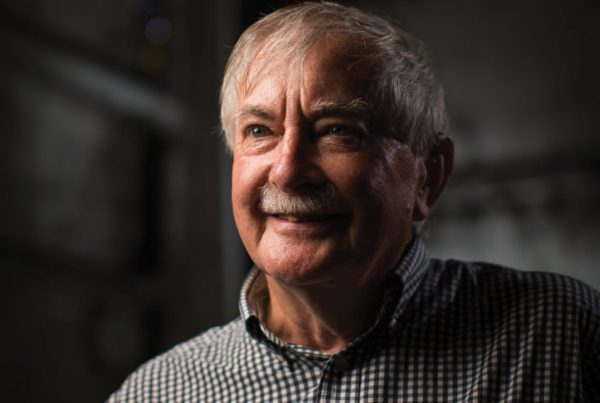
Recent Comments